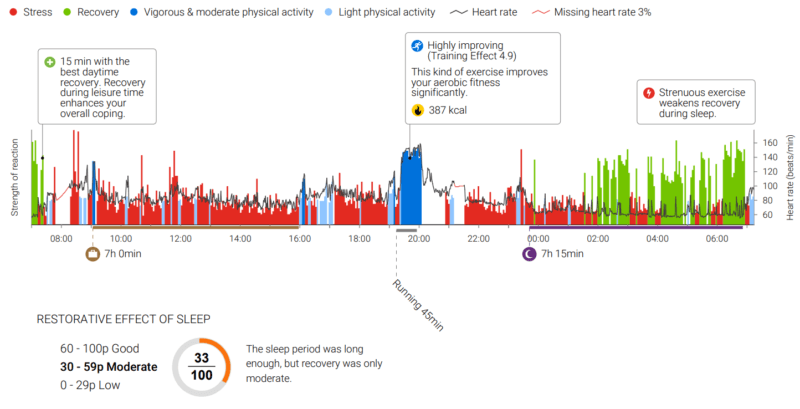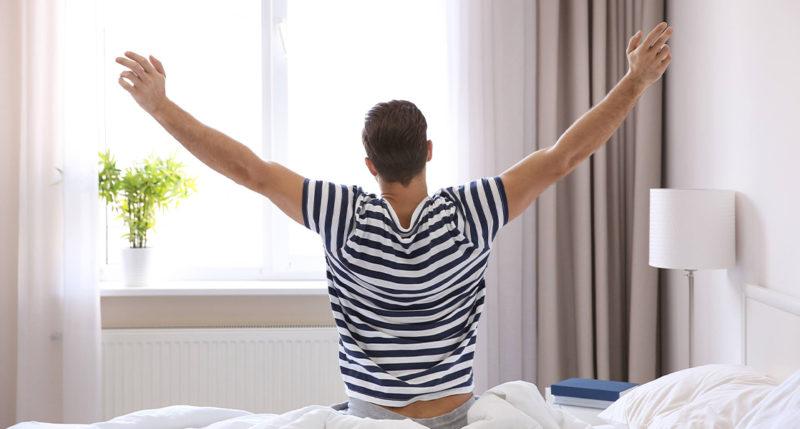
Would you say your wellness is well-balanced right now: Are you sticking with mainly good choices that promote your health and well-being, or are you struggling with not-so-good choices dragging you down? Many people find that mid-winter blues and lack of daylight make it harder to stay energized and motivated. Despite well-intended New Year’s promises, a recent survey revealed that 44% of British workers suffer from feeling down at this time of year and are having a hard time getting going after the holidays. This blog will look at the importance of daily choices in getting the wellness balance and overall “life load” right – without forgetting the big picture.
Choices Matter
A widely accepted lifestyle strategy is to aim for moderation and sustainable change by starting small and realistic, instead of going for a major lifestyle overhaul. We are faced with all kinds of wellness choices every day: whether to exercise or rest, have that 2nd or 3rd glass of wine, finish the household chores or go to bed early… A gentle way to approach this is to try to make more of the good choices and less of the bad ones. Of course, the badness of the bad choices determines how well the approach works! If you make good choices all week but throw everything out the window every weekend, the bad choices can essentially cancel the effect of good ones for several days and leave you struggling, even if the number of good choices might have technically outnumbered the bad ones.
The principle of moderation itself requires some moderation. Be mindful of how much rope you give yourself. If you identify the key choices that affect your well-being and stick to them most of the time, you can keep your wellness balanced even with an occasional detour. Personally, my key choices include a regular evening routine and bedtime, minimal alcohol and slowing down before I go to bed, but I also try to allow life to happen. Just last weekend I caught up with a couple of friends out of town: laughing, “solving the world’s problems”, good food, good drinks (going for quality rather than quantity), theatre and live music. Later bedtimes and lively evenings probably didn’t help my sleep, but the positives far outweighed the negatives. The energy boost from getting a break from routine and spending time with friends cancelled out the effect of a few drinks – at least mentally, if not physiologically. I started the week with a spring in my step.
Keep an Eye on the Big Picture!
Then there are choices that are not obviously ‘good’ or ‘bad’: they might acutely challenge us, but in the long run, they tip the scale in the right direction. I’ll share a common dilemma here that is often raised among Firstbeat Lifestyle Assessment participants and people who monitor their sleep with a wearable.
You might have noticed that if you complete a hard workout, especially in the evening, your sleep result is compromised the following night: heart rate is elevated, sympathetic nervous system is activated, and feedback tells you that “sleep quality was poor” (see Firstbeat Lifestyle Assessment graph below). Many people wonder if this means that they should not do this kind of exercise. However, physiologically it’s normal for the body to take some time to recover from exercise, and this affects the following night, even with elite athletes. As long as you don’t do this every evening, and alternate hard exercise with easier workouts, there is no need to worry, unless you suffer from serious sleep problems or overload.
Evening might be the only time a working mom or dad has a chance to exercise, and maintaining good fitness outweighs the occasional negative effect it has on sleep. Numerous studies, including findings from the Firstbeat database show that good fitness protects us from many health risks and makes it easier to handle stress. If feeling very fatigued or struggling with sleep, you can try to exercise a bit earlier or reduce the intensity for a while.

Pic 1. A hard evening workout affects the quality of recovery, as shown by the stress reactions (red) during sleep, but this is a normal physiological reaction and no cause for alarm if it’s balanced by easier workouts.
I often emphasize that there is no one-size-fits-all truth when it comes to wellness because we are all affected by our own realities. Life happens – and does not always need to follow a perfect recipe. If you listen to your body, identify some key wellness choices (specific to you), and start doing things a little bit better, as often as possible, you can manage your life load and keep moving in the right direction despite an occasional detour.
Want to find the balance between good and bad wellness-related choices?
You might also be interested in

Reflections on Sleep: Keeping Things in Perspective & Moving Towards A Better Snooze
Sleep is hugely important for good health and performance. It’s a key cornerstone of wellness that needs to be taken seriously both at societal and individual level.

Rest Is Not the Same as Recovery – And 4 Other Surprising Things I’ve Learned About Resilience
What Firstbeat’s Heart Rate Variability analytics can tell you about resilience.

3 Ways to Live Better in 2019
3 invaluable tips from a leading wellness expert to help you live better this year.


